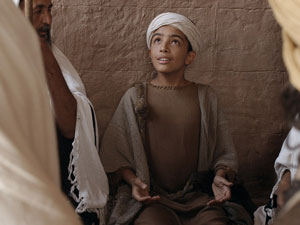Learning from Rotherham
What does it mean to place the needs and well-being of children at the very heart of our shared life? By Linda Hopkins
 The reports of cases of child sexual exploitation (CSE) in Rotherham should have shocked us all. In Alexis Jay’s independent report it was estimated that between 1997 and 2013 1400 children were victims of sexual exploitation and abuse in the Rotherham area.
The reports of cases of child sexual exploitation (CSE) in Rotherham should have shocked us all. In Alexis Jay’s independent report it was estimated that between 1997 and 2013 1400 children were victims of sexual exploitation and abuse in the Rotherham area.
While what has been uncovered in South Yorkshire is shocking, sadly it is not the only place such things occur. In a response to the Rotherham report[1] Camila Batmanghelidjh, the flamboyant director of the charity Kids Company challenges us to look wider when she says that ‘currently thousands of girls and boys are being harmed in street gangs, used as sexual trophies, violated without being afforded protection’.
There are many things that are saddening from the findings in Rotherham; one of these is the blame that was put on the victims, the children, for their own abuse, which caused professionals to overlook the crimes being perpetrated.
Some of these children were labeled ‘out of control’ or ‘slags’ and were deemed to have got themselves into their own mess. Yet what these cases highlight is the vulnerability of the young girls caught up in a cycle of abuse and sexual exploitation. Some were as young as 11 years old, many lived in care, others had troubled home lives.
In Mark 10 we read the account of Jesus welcoming the little children that parents were bringing to him for a blessing. The disciples wanted to move them along out of the way, but Jesus rebuked them for doing this, instead taking the children into his arms and blessing them. In his actions Jesus takes these vulnerable and weak children, with no importance or status in their society, and shows how important they are, not only through the act of blessing but also in his profound words that ‘the Kingdom of God belongs to such as these’.
Have we placed children in the centre of all that we do?
Sometimes we may forget that children are vulnerable in our society, particularly young teens who quite rightly at a time of transition are finding their way into adulthood. We need to allow children to take risks, to explore and to take increasing responsibility for themselves, but whilst they are still children (and into early adulthood), they need protective, parental care.
When we recognise the vulnerability of children, including those that we or society may label as troublesome or problem, we will remember that the call of the Gospel is one to care for the weakest and most vulnerable, to seek justice for them, to bring liberation from oppression and to seek their wellbeing.
 In the story of the sheep and the goats (Matthew 25:40) Jesus said, ‘Whatever you did for one of the least of these brothers and sisters of mine, you did for me.’ Compare this to his placing of the child in the centre in Mark 9 and saying ‘whoever welcomes one of these little children in my name welcomes me’.
In the story of the sheep and the goats (Matthew 25:40) Jesus said, ‘Whatever you did for one of the least of these brothers and sisters of mine, you did for me.’ Compare this to his placing of the child in the centre in Mark 9 and saying ‘whoever welcomes one of these little children in my name welcomes me’.
When did we see one of the ‘least of these’ hungry, thirsty, sick, in trouble? When did we have concern over the behaviour or wellbeing of a child or young person? Have we placed children in the centre of all that we do? Our Christian response should be one of compassion and often involves practical action towards the least of these in our society. This requires eyes, ears and hearts that are open to see, hear and respond to what the most vulnerable are saying; taking their actions and cries for help seriously. It requires us to see in often challenging people and situations the person of Christ.
Rotherham’s CSE cases highlight that some of the most vulnerable in our society are children who through no fault of their own have been labeled as problematic and their plight overlooked. It also highlights that many children will not readily say that there is a problem because they are too scared to do so, or feel that what is happening to them is their own fault. Children need to be able to have adult figures that really listen to them, that they can trust, and who have their best interests at heart.
Of course all of this should make us more aware of the need for safeguarding policies and practices in our churches that are robust. Yet a policy in itself is not enough if it is seen as a set of dry rules and regulations, or just there to protect those in positions of power.
Our policies towards working with children and young people in our churches must be driven by a Gospel desire for justice and love towards the least of these, seeing Christ in the children in our churches and in our communities. And our practices should be shaped around placing the child at the centre, welcoming them, and doing the absolute best that we can to protect them and seek their wellbeing.
Linda Hopkins is a Tutor at the Northern Baptist Learning Community. She co-authored Starting from Scratch in the Grove Youth series
[1] ‘Children and Young People Now’ 16-29 Sept 14 Fallout from Rotherham abuse: the challenges and implications.
This article appeared in the Spring 2015 edition of Baptists Together Magazine
Photos:
The kneeling down girl: SandraKavas / istockphoto.com
The Lumo Project: The Lumo Project
Together Magazine, 11/01/2015